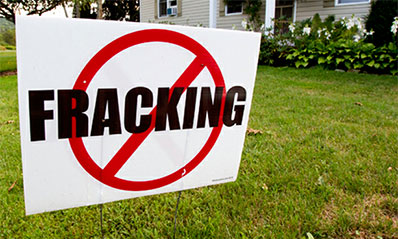Debate Overview
In March 2015, the US government issued a new set of hydraulic fracturing safety mandates aimed at protecting groundwater on federal and tribal lands. The updated regulations from the Department of the Interior impacted around 90,000 operations across the country, requiring disclosure of chemical use and more stringent wastewater containment efforts. However, a number of states have opposed the new mandates, arguing that federal law grants a state the right to regulate oil and gas operations. In June 2015, a Wyoming federal judge blocked the implementation of the rules pending further review, and both sides of the case continue to develop their arguments.
Intelligence Squared US (IQ2US) first addressed this topic in 2012 with a debate entitled “No Fracking Way: The Natural Gas Boom is Doing More Harm than Good.” Calling on a team of expert panelists, IQ2US broached many of the topics that continue to drive public debate over the benefits and pitfalls of hydraulic fracturing.
Framing the debate, IQ2US Chairman Robert Rosenkranz began, “Hydraulic fracturing, or fracking, is used to extract natural gas locked up in shale rock. The process involves pumping millions of gallons of water and tons of chemicals under very high pressure into rock formations nearly two miles under the Earth’s surface. The environmental concerns are obvious. Accidents can happen anywhere along the line, especially during pumping operations or in disposing of wastes. Aquifers can be contaminated by methane and fracking fluids. Some highly toxic chemicals might percolate into groundwater. Large quantities of methane, a powerful greenhouse gas, might be emitted.”
“There’s even concern that fracking might induce earthquakes. Would you trust the oil industry to take proper precautions? How can they justify taking these kinds of environmental risks? Well, what are the counterarguments? Put simply, cheap and abundant natural gas is Viagra for the limp US economy. Shale already provides nearly a quarter of our natural gas. It’s projected to support 870,000 jobs by 2015. By reducing electric bills, it will put more than $900 a year in the pockets of the average household. The geopolitical benefits are equally dramatic. By reducing oil imports and pressuring oil prices down, we reduce the power and leverage of such oil-exporting troublemakers as Venezuela and Russia, Saudi Arabia and Iran. There’s also a strong environmental argument in favor. The real world choice is burning gas and burning coal. Per unit of energy, coal creates twice the carbon emissions as gas does. The US has reduced its carbon emissions far more than Europe has done, and natural gas is the reason.
This debate is about the inevitable trade-offs between risks and rewards. Clearly, the risks are real and it is reasonable to be concerned about them. But the benefits are real, too. The polarizing nature of fracking is perhaps most evident in the attempts of various states and municipalities to limit it. While New York recently banned fracking entirely, both Oklahoma and Texas have passed laws preventing local fracking bans.
The debate over fracking also continues on the IQ2US online poll, which is still accepting votes: http://intelligencesquaredus.org/debates/past-debates/item/698- no-fracking-way- the-natural- gas-boom- is-doing- more-harm-than-good&tab=2




